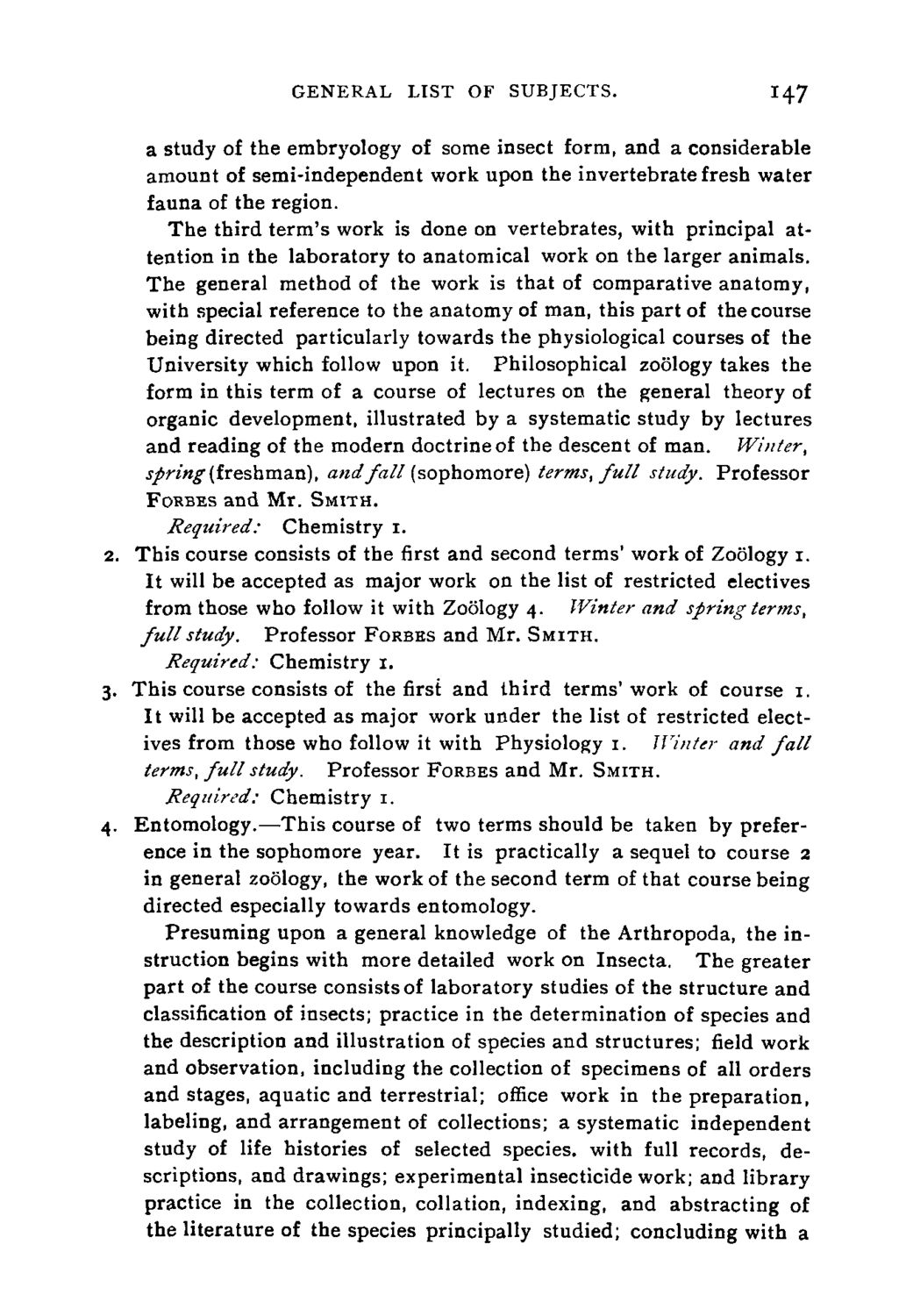| |
| |
Caption: Course Catalog - 1893-1894
This is a reduced-resolution page image for fast online browsing.

EXTRACTED TEXT FROM PAGE:
GENERAL LIST OF SUBJECTS. 147 a study of the embryology of some insect form, and a considerable amount of semi-independent work upon the invertebrate fresh water fauna of the region. The third term's work is done on vertebrates, with principal attention in the laboratory to anatomical work on the larger animals. The general method of the work is that of comparative anatomy, with special reference to the anatomy of man, this part of the course being directed particularly towards the physiological courses of the University which follow upon it. Philosophical zoology takes the form in this term of a course of lectures on the general theory of organic development, illustrated by a systematic study by lectures and reading of the modern doctrine of the descent of man. Winter, spring (freshman), andfall (sophomore) terms, full study. Professor FORBES and Mr. SMITH. Required: Chemistry 1. 2. This course consists of the first and second terms' work of Zoology 1. It will be accepted as major work on the list of restricted electives from those who follow it with Zoology 4. Winter and spring terms, full study. Professor FORBES and Mr. SMITH. Required: Chemistry 1. 3. This course consists of the first and third terms'work of course 1. It will be accepted as major work under the list of restricted electives from those who follow it with Physiology 1. Winter and fall terms, full study. Professor FORBES and Mr. SMITH. Required: Chemistry 1. 4. Entomology.—This course of two terms should be taken by preference in the sophomore year. It is practically a sequel to course 2 in general zoology, the work of the second term of that course being directed especially towards entomology. Presuming upon a general knowledge of the Arthropoda, the instruction begins with more detailed work on Insecta. The greater part of the course consists of laboratory studies of the structure and classification of insects; practice in the determination of species and the description and illustration of species and structures; field work and observation, including the collection of specimens of all orders and stages, aquatic and terrestrial; office work in the preparation, labeling, and arrangement of collections; a systematic independent study of life histories of selected species, with full records, descriptions, and drawings; experimental insecticide work; and library practice in the collection, collation, indexing, and abstracting of the literature of the species principally studied; concluding with a
| |